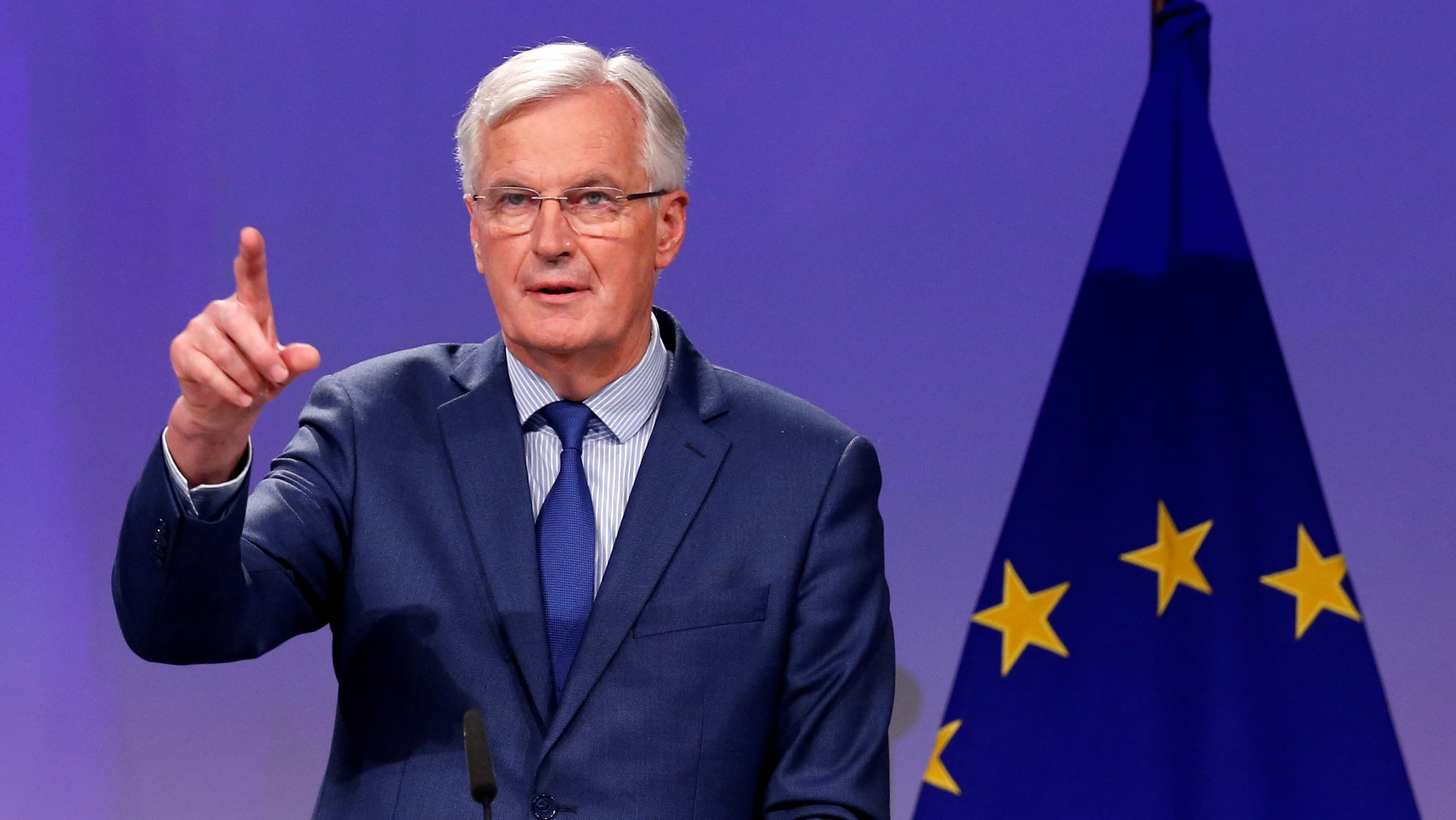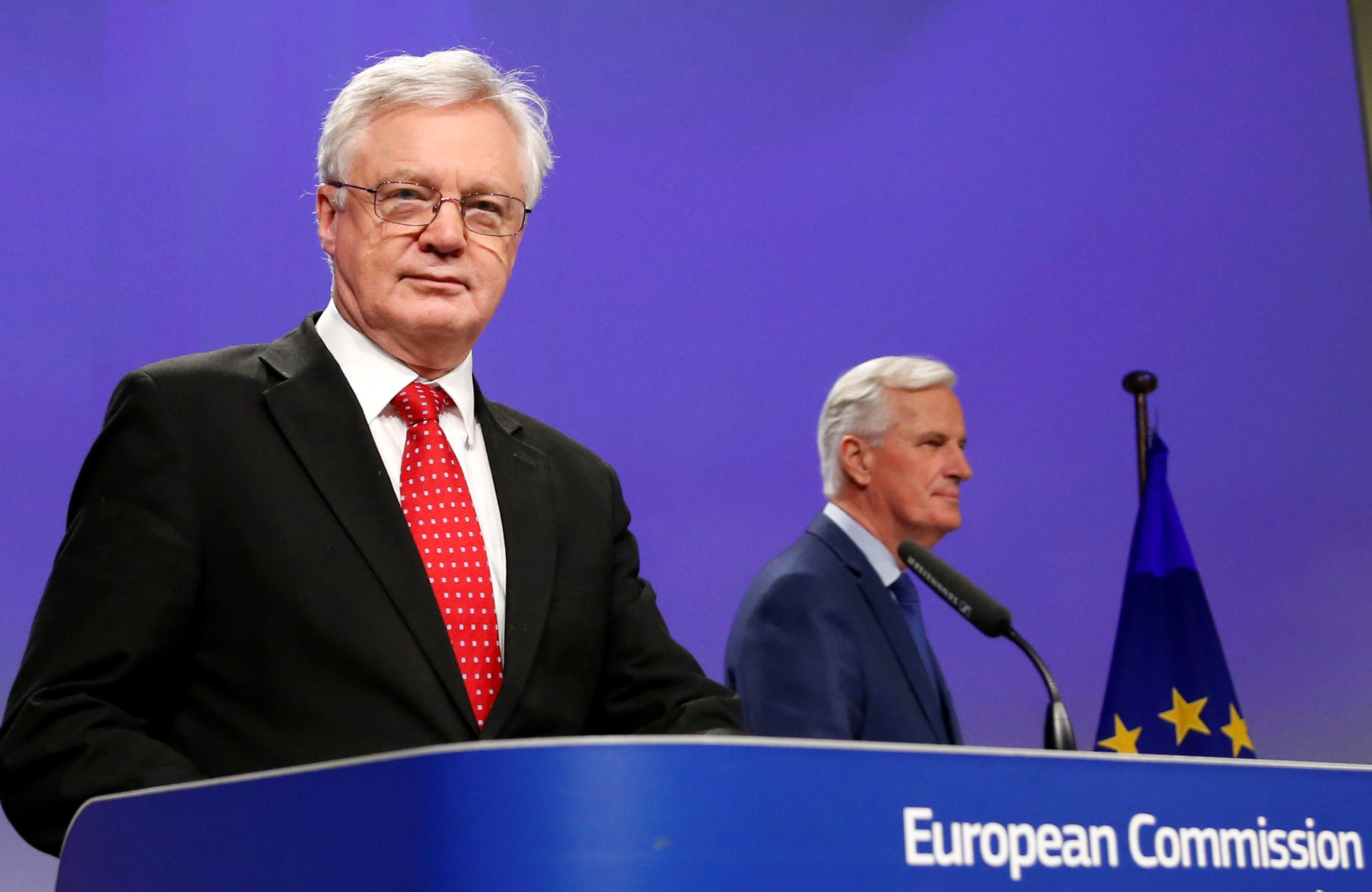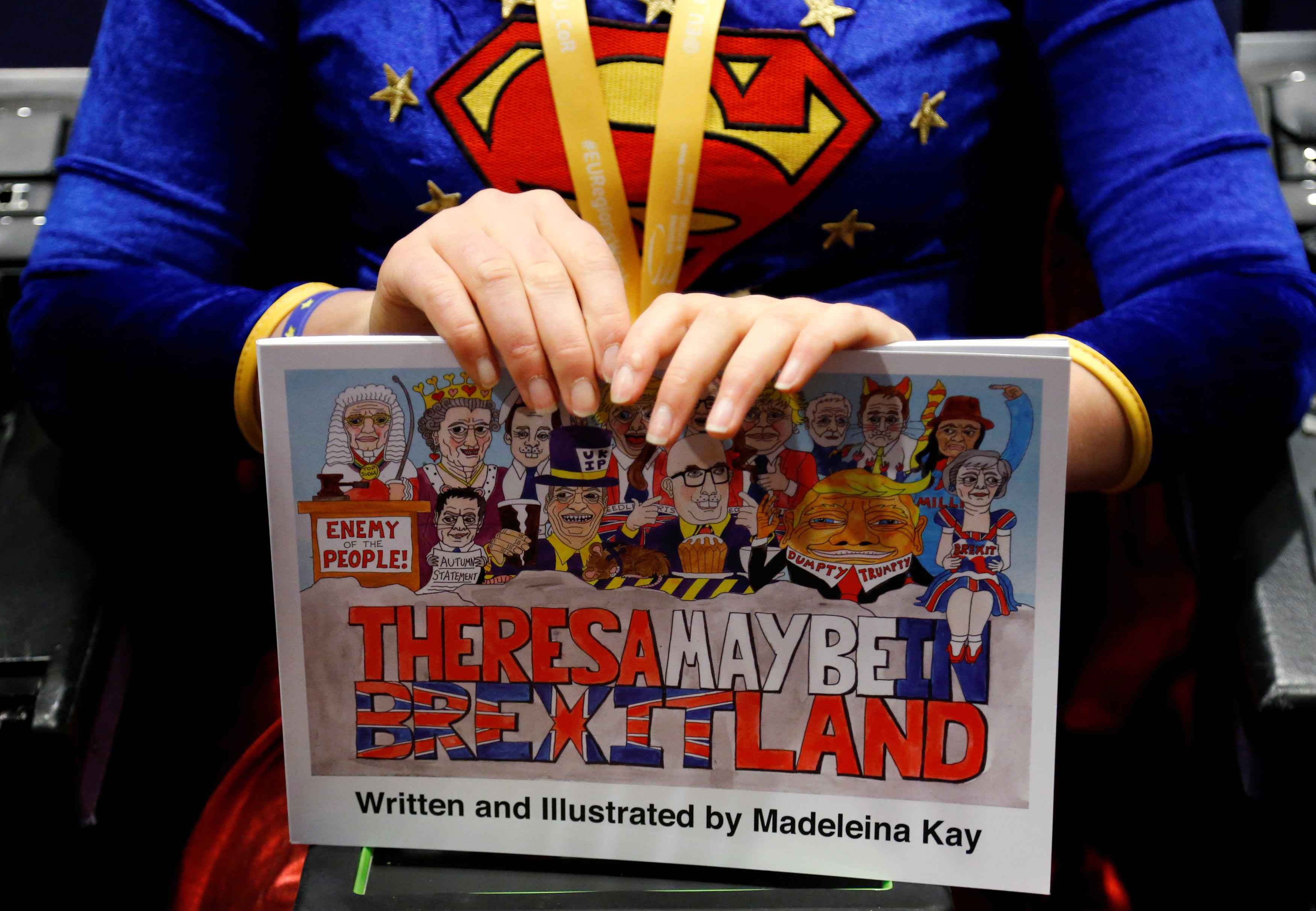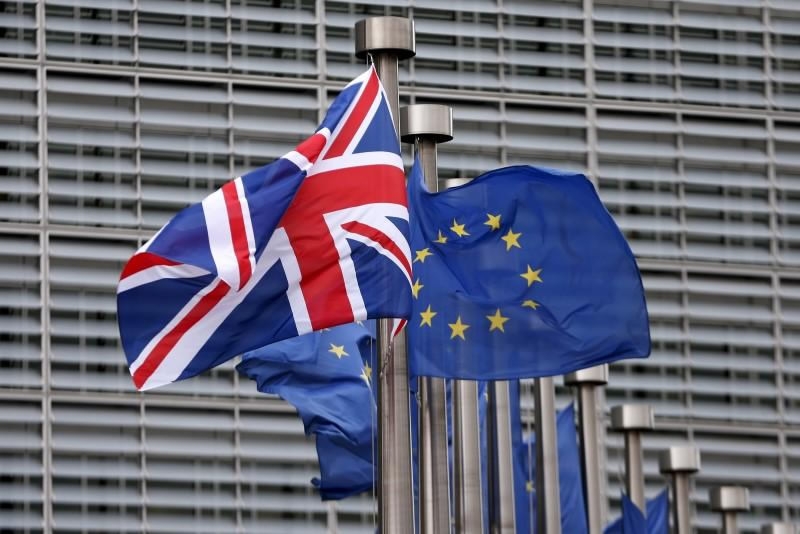
Politics
12:03, 13-Oct-2017
Brexit talks in deadlock over UK payment to EU
By Richard Bestic

The European Union’s chief Brexit negotiator, Michel Barnier said on Thursday the UK has failed to make enough progress to start the next stage of talks.
At the close of the fifth round of negotiations, Barnier talked of a “disturbing deadlock.”
The UK had hoped Barnier would go to a summit next week of the other 27 member states and recommend that Britain was now in a position to discuss its future trade relations with the EU.
It will come as a disappointment to the government of UK Prime Minister Theresa May, who has been challenged on what she will do if time runs out and there’s still no new trade in place.

Reuters Photo
Reuters Photo
The talks are placing strains on relationships around the cabinet table in London, with divisions focusing on preparations for the UK crashing out of the EU with no trade agreement.
There are reports of rows between ministers on the sums being set aside to alleviate any chaos that might ensue from a failed bid for a new trading relationship with what is the world’s richest and most powerful trading bloc.
According to UK government figures 63 percent of UK trade is with the EU. Without a trade deal in place, it’s uncertain what would happen to that flow of cargo.
The main sticking point in the Brexit talks remains cash, how much Britain should pay for commitments to which it has already signed up.
Too little and the EU will reject it, too much and Eurosceptic hardliners in Theresa May’s government will rebel.

Reuters Photo
Reuters Photo
During the referendum last summer, Brexit campaigners toured the country promising savings of 450 million US dollars a week in payments to the EU.
The talk now is that Brussels will be demanding anything up to 100 billion US dollars before even starting talks on trade.
There remain also unresolved issues surrounding citizens living in the UK and difficulties over Northern Ireland and the Irish Republic, what will become Britain’s only border with the EU.
The hope in London is that next week’s EU summit will loosen the mandate that’s restricted Michel Barnier movements and break the logjam.
That possibility, however, is far from guaranteed.
Summing up, Barnier said: "I am not able in the current circumstances to propose next week to the European Council that we should start discussion on the future relationship."
He said he hoped for decisive progress by the time of the December summit of the European Union.
But the real sticking point is money. Barnier said the UK wasn’t in a position to say this week what it would pay as part of the divorce.

Reuters Photo
Reuters Photo
Britain’s Brexit Minister David Davis said advances have been made in the talks, but the hard reality as presented by Barnier is in stark contrast to that claim.
At home, opposition members of parliament say they're not surprised at the deadlock. It has been obvious for a long time, according to Hilary Benn, the chair of the UK Parliament’s committee on exiting the EU.
It raises the very real danger that Britain may indeed not have a deal in place by the time it is scheduled to leave the EU in March 2019.

SITEMAP
Copyright © 2018 CGTN. Beijing ICP prepared NO.16065310-3
Copyright © 2018 CGTN. Beijing ICP prepared NO.16065310-3